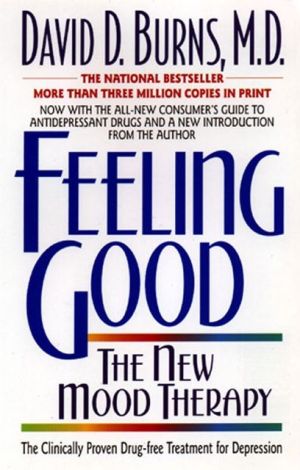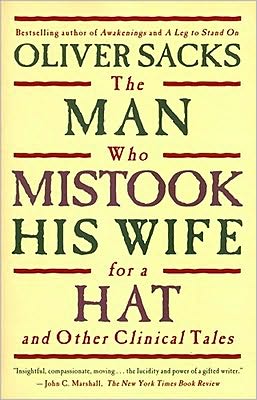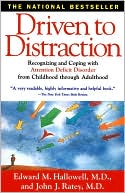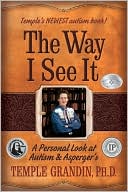Demystifying Anorexia Nervosa: An Optimistic Guide to Understanding and Healing
Emotionally and physically devastating, anorexia nervosa is the third most common chronic illness in teenage girls, striking one in every two hundred (boys only make up 10% of all cases). And while there are many books on the subject, most are either personal accounts of recovery or attempts to explain the disease from only one perspective, be it psychoanalytic, behavioral, cultural, or biological.\ Now, in this much-needed resource, Dr. Alexander Lucas draws on 40 years of experience mostly...
Search in google:
Emotionally and physically devastating, anorexia nervosa is the third most common chronic illness in teenage girls, striking one in every two hundred (boys only make up 10% of all cases). And while there are many books on the subject, most are either personal accounts of recovery or attempts to explain the disease from only one perspective, be it psychoanalytic, behavioral, cultural, or biological. Now, in this much-needed resource, Dr. Alexander Lucas draws on 40 years of experience mostly at the Mayo Clinic to offer clear guidance and authoritative advice on how to overcome anorexia nervosa. Based on his own unique research with thousands of patients, and striking a careful balance between psychological, cultural, and biological approaches, Dr. Lucas demystifies this seemingly irrational disease and guides parents through the harrowing process of recovery. The book defines anorexia, illustrates how it can evolve and how common it really is, and outlines every part of the treatment process, from the early warning signs that parents should watch out for, to the initial evaluation, to specific treatment plans. Dr. Lucas emphasizes the patient's role in defining the healing process, with the support of the family and medical team. Throughout the book, he counsels optimism, stressing that in spite of the destructive power of the disease, most who suffer from anorexia nervosa fully recover and are able to live normal, healthy, and productive lives. In his new Introduction, Dr. Lucas stresses the need for controlled studies of treatment in anorexia nervosa, and reiterates the hard truth that anorexia will always be a complex disorder that takes time and patience to overcome. For anyone seeking level-headed, medically sound, and comprehensive guidance on the most effective treatments for this life-threatening disorder, Demystifying Anorexia Nervosa offers a wealth of reliable, reassuring information. "A clear, informative book for every patient and parent to read and for every physician to recommend." —Lenore Terr, M.D. "A must-read for patients and family as well as clinicians who want a concise, balanced, and up-to-date discussion of the art and science of the treatment of anorexia nervosa." —L. K. George Hsu, M.D. Doody Review Services Reviewer:Patricia E. Murphy, PhD(Rush University Medical Center)Description:This inviting book makes its point about the different causes, treatments, and outcomes for people with anorexia very gently through the use of cases. Although the content is rich, readers are led through stories about patients and their families with compassion.Purpose:The author points out that there are many myths about this frustrating illness. One myth, for example, is that anorexia is usually the fault of the parents. Rather than having families turn to the Internet or dramatic stories in the media, this physician with 40 years of experience hopes to offer reliable and less pessimistic information about anorexia.Audience:Although this will not provide answers for all of their questions, families of children with anorexia are apt to get both support and solid information from this book. Clinicians who work with persons with this diagnosis might also find it provides a refreshing perspective on anorexia nervosa.Features:The table of contents looks fairly clinical, for example, "What Causes Anorexia?" However, the information, which has a solid research base, is provided in understandable bits along with stories that highlight the topic. When useful, illustrations and graphs support the content. As a reader, I found that this had a calming effect and I expect it will be the same for parents. Families will find it particularly helpful to have information about what to expect in an evaluation and treatment. The author writes with great respect for patients. This could alleviate some of the fears of both the patient and the family.Assessment:This valuable book for parents and patients provides both scientific information about the illness and a sense of community with the stories of other families who have dealt with the stressor. Clinicians might want to suggest it for bibliotherapy or even have loaner copies for their clients.
Preface ixAcknowledgments xiiiIntroduction xvWhat Is Anorexia Nervosa? 3How Does Anorexia Nervosa Evolve? 11How Common Is Anorexia Nervosa? 19What Causes Anorexia Nervosa? 27The Signs of Trouble 54What to Expect in an Evaluation 63Making the Diagnosis 70Disorders That Mimic Anorexia Nervosa 77Physiological Effects of Starvation and Weight Gain 82How Is Fertility Affected? 89Bulimia, Bulimia Nervosa and Binge Eating 94Treatment 102Is Recovery Possible? 138Can Anorexia Nervosa Be Prevented? 155Message for Patients 161Resources for Families 163Notes 167Index 175
\ From The CriticsReviewer: Patricia E. Murphy, PhD(Rush University Medical Center)\ Description: This inviting book makes its point about the different causes, treatments, and outcomes for people with anorexia very gently through the use of cases. Although the content is rich, readers are led through stories about patients and their families with compassion.\ Purpose: The author points out that there are many myths about this frustrating illness. One myth, for example, is that anorexia is usually the fault of the parents. Rather than having families turn to the Internet or dramatic stories in the media, this physician with 40 years of experience hopes to offer reliable and less pessimistic information about anorexia.\ Audience: Although this will not provide answers for all of their questions, families of children with anorexia are apt to get both support and solid information from this book. Clinicians who work with persons with this diagnosis might also find it provides a refreshing perspective on anorexia nervosa.\ Features: The table of contents looks fairly clinical, for example, "What Causes Anorexia?" However, the information, which has a solid research base, is provided in understandable bits along with stories that highlight the topic. When useful, illustrations and graphs support the content. As a reader, I found that this had a calming effect and I expect it will be the same for parents. Families will find it particularly helpful to have information about what to expect in an evaluation and treatment. The author writes with great respect for patients. This could alleviate some of the fears of both the patient and the family.\ Assessment: This valuable book for parents and patients provides both scientific information about the illness and a sense of community with the stories of other families who have dealt with the stressor. Clinicians might want to suggest it for bibliotherapy or even have loaner copies for their clients.\ \








